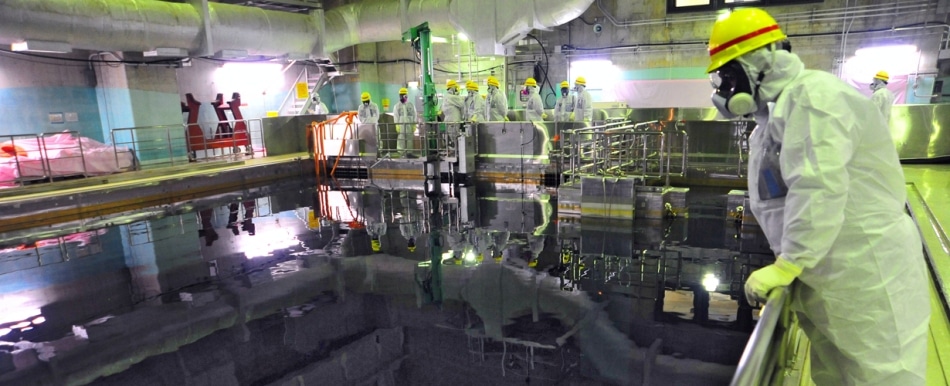Apr 4 2019
The University of Huddersfield’s combined electron microscope and ion beam accelerator is a world-class facility responsible for a large and growing global network of research collaborations. One of the latest is a partnership with Brazil’s leading university and the scientific significance of this link and how it could help ensure the safety of nuclear power is described in an article that appears in its journal.
 In 2011, at the Fukushima nuclear power station (Japan), nuclear fuel coating reacted with water vapor in the reactor chamber, generating hydrogen accumulation, which caused an explosion; since then, scientists are looking for materials that are more resistant to the effects of radiation - Photo: IAEA Imagebank via Wikimedia Commons / CC BY-SA 2.0
In 2011, at the Fukushima nuclear power station (Japan), nuclear fuel coating reacted with water vapor in the reactor chamber, generating hydrogen accumulation, which caused an explosion; since then, scientists are looking for materials that are more resistant to the effects of radiation - Photo: IAEA Imagebank via Wikimedia Commons / CC BY-SA 2.0
The Huddersfield facility is named MIAMI – standing for Microscopes and Ion Accelerators for Materials Investigations. One of its key roles is to test the ability of materials to withstand radiation damage in nuclear reactors.
Physicist Matheus Tunes is completing his doctoral studies at Huddersfield, supervised by MIAMI’s Professor Stephen Donnelly and Dr Jonathan Hinks, having previously graduated from the University of São Paulo (USP) – the major institution of higher learning and research in Brazil. This has helped establish a burgeoning connection between the UK and Brazilian universities.
An article (originally in Portuguese) headed “How to test radiation resistance without using a nuclear reactor” is the lead item in the latest edition of the Journal of the University of São Paulo (Jornal da USP). It tells how scientists, including the USP’s Professor Claudio Geraldo Schön, are engaged on a quest to find materials that can ensure disasters such as the 2011 accident at Japan’s Fukushima Daiichi nuclear power station will not recur.
One candidate was titanium nitride and this was tested at the MIAMI facility by Matheus Tunes, Osmane Camara, Dr Graeme Greaves and São Paulo doctoral researcher Felipe Carneiro, who is supervised by Professor Schön. The USP journal article describes how the facilities at Huddersfield enabled the radiation resistance of titanium nitride to be tested in a transmission electron microscope coupled to a particle accelerator.
Professor Schön explains the advantages of using an ion beam accelerator: “Radiation is simulated by xenon ions, which, in colliding with the particles of the tested material, simulate the damage caused by neutron radiation from nuclear fuel. If this was done in a nuclear reactor, besides the higher cost and the difficulty of controlling the reaction, all the material would potentially become radioactive, which is not the case with this technique.”
The tests at MIAMI showed that titanium nitride is not a suitable material for coating nuclear fuel. But the new article tells how doctoral researcher Matheus Tunes is using the transmission electron microscopy facilities at Huddersfield to analyse other materials that have promise in the field of radiation damage protection. These include high entropy alloys and MAX phases (metals with carbon and silicon).
Professor Schön’s comment is that: “These combinations would allow alloys with a very high melting temperature, which would make it difficult to change the structure of the material, increasing its stability. The less the alloy changes, the greater the ability to withstand radiation.”